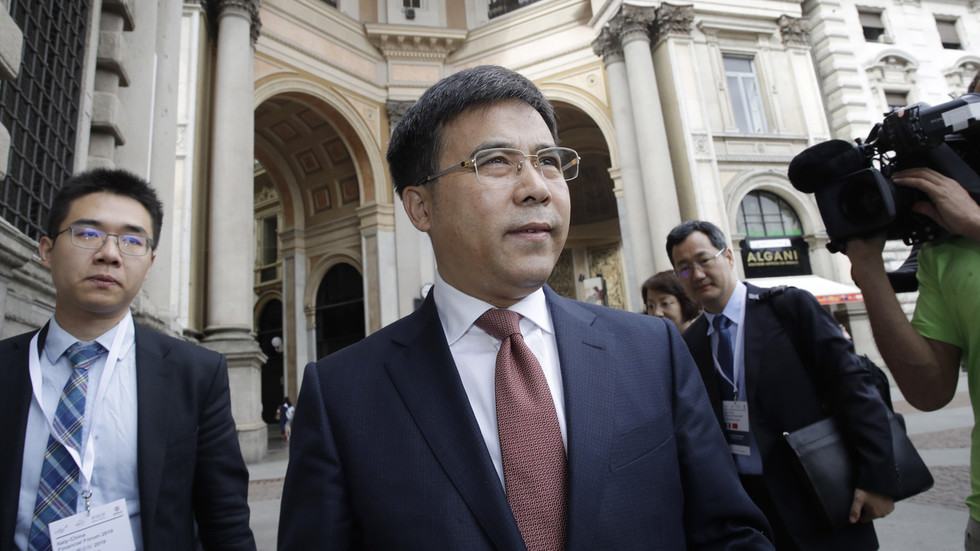Liu Liange, the former chairman of the Bank of China, has been sentenced to a suspended death sentence for corruption as part of a broader anti-corruption initiative spearheaded by the Chinese government. This sentence, reported by Xinhua News Agency, is the culmination of Liu’s involvement in various illicit activities, including accepting bribes amounting to nearly $17 million and engaging in the illegal issuance of loans. Liu, who led the financial institution for four years before resigning in March 2023, was first apprehended by the authorities in October of the previous year. The sentencing also includes the confiscation of all of Liu’s personal assets and a mandate to recover any illegal gains to be handed over to the state treasury.
The two-year reprieve attached to Liu’s suspended death sentence suggests a measure of leniency, attributed to his cooperation with law enforcement and expression of remorse for his actions. Under this reprieve, the implementation of the death penalty will occur only if Liu engages in further criminal activities during this period. Should the reprieve remain in place, he would instead face a life imprisonment. At the age of 63, Liu becomes part of a growing list of high-ranking officials subjected to severe punitive measures as China continues its rigorous anti-corruption campaign.
This extensive crackdown, initiated by President Xi Jinping, primarily targets the various sectors within China’s vast $60 trillion financial landscape. Liu’s sentencing follows a pattern observed with other prominent figures who have faced similar fates, such as former deputy central bank governor Fan Yifei, who was condemned to a suspended death sentence for bribery, and Bai Tianhui, a former executive at a major state-controlled asset management firm, who was likewise sentenced to death for accepting significant bribes. These cases exemplify the serious consequences that high-profile individuals may face in the wake of the ongoing anti-corruption drive.
Since Xi Jinping’s ascent to the presidency a decade ago, combating corruption has been framed as a critical policy priority within China, garnering considerable public backing. The campaign forms part of a broader narrative that Xi is using to strengthen his authority and eliminate rival factions. Critics, however, argue that this strategy primarily serves as a means for Xi to consolidate power by replacing potential adversaries with loyal supporters in strategic government positions.
The implications of Liu Liange’s sentencing resonate beyond individual accountability, highlighting an intensified governmental focus on maintaining integrity in public service and financial institutions. In light of widespread corruption scandals, this crackdown may instigate broader reforms aimed at enforcing higher standards of conduct among government officials and leaders in various sectors of the economy. The overarching goal is to restore public trust in the government and financial systems, which have experienced severe strain due to unethical practices and corruption-related incidents.
As such, Liu Liange’s case is emblematic of a significant cultural and political shift within China, where the government appears more resolute about addressing corruption through stringent legal measures. The effectiveness and long-term impact of these initiatives remain to be seen, but the swift and decisive actions taken against individuals such as Liu serve as a warning to others who might consider engaging in similar corrupt practices and signal the government’s commitment to reforming its governance frameworks.

